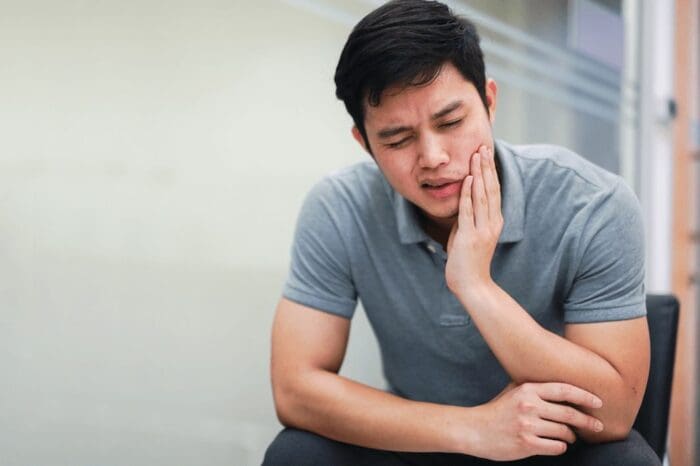If you suffer from chronic jaw pain or tooth sensitivity, you may have bruxism. Bruxism, or teeth clenching and grinding, is a condition that can occur unconsciously when one is asleep or in a stressful situation. Millions of people in the United States are diagnosed with bruxism each year but may not receive treatment because they are not aware of the condition.
Those who smoke or have a crooked bite are more prone to developing the condition than other patients. It is important to know the signs of bruxism before oral health and chronic pain problems don’t develop further.

Common Symptoms of Bruxism
Common symptoms of bruxism include:
- Loose Teeth
- Tooth Pain
- Headaches
- Lockjaw
- Ringing in the ears
- Muscle Soreness
- Tooth Sensitivity
- Earaches
- Difficulty chewing and swallowing
- Fractured Teeth
- Jaw Soreness
Our professionals will work with you to find the source of your symptoms and find an effective solution.
Treatment for Bruxism
The professional team at Claremont Dental Institute provides patients with treatment for bruxism by utilizing oral appliances. We work with patients every step of the treatment process to ensure that everything runs smoothly and effectively. Before treatment, one of our dentists will conduct a comprehensive examination of your teeth and gums to determine the cause of your symptoms. They will also make sure that treatment aligns with your particular budget and oral health goals.
Oral appliances act as mouth guards that are custom-fit to each patient. These appliances prevent teeth from touching or grinding together and also shift the jaw into the proper alignment. This treatment also alleviates jaw pain and prevents further wear and tear to teeth. After treatment with oral appliances, patients with crooked teeth and a misaligned bite can receive further restorative and cosmetic treatment.
Do you grind and clench your teeth in stressful situations? Call the Claremont Dental Institute for comfortable bruxism treatment today at (909) 277-6919.
